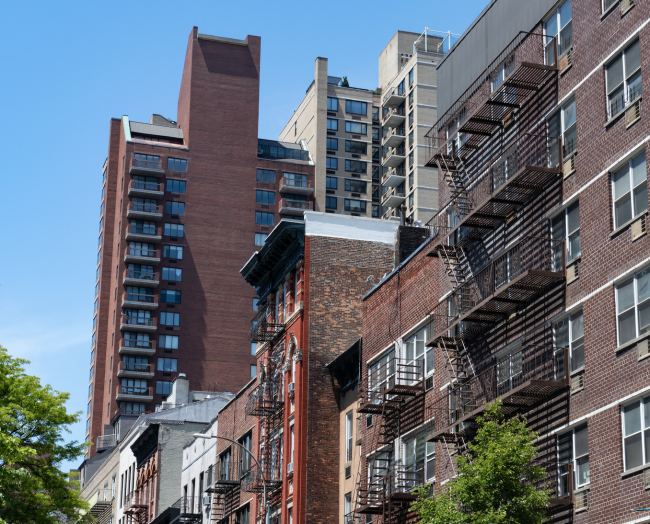The big bad board: How do we replace our entire condo board?
- You can call a special meeting or wait until the annual meeting to elect new board members
- Read your bylaws before starting this process and you’ll likely want an attorney on your side

Your building's bylaws will specify how much notice residents need of a special meeting.
iStock
I live in a New York City condo building where over 50 percent of the unit owners have met and decided it is necessary to replace the entire board without consideration of their particular running terms. We know there is a process that needs to be followed. How do we go about replacing the board in accordance with our condo’s bylaws and city and state laws?
There are a handful of steps you need to take to replace your board, according to our experts. But it’s not going to be easy.
It’s very unusual for owners to go through with replacing an entire board, though it is something residents consider, says Marc Landis, managing partner at law firm Phillips Nizer.
“We regularly hear about folks who want to turn out an entire board, but it’s not that common that there’s a majority in a building who feel that way and are willing to do something about it,” Landis says.
You do have options other than a full-blown coup. You could attempt to speak with the board about the issues you are experiencing, or encourage them to resign to avoid a contentious election, says Michael Wolfe, chair of the Real Estate Board of New York’s residential management council and a board member of Council of New York Cooperatives & Condominiums.
“I’d suggest a meeting with the board to discuss the issues with the intent of a mutually beneficial outcome,” Wolfe says. “If the necessary percentage of ownership to remove the board has been established by petition, they may ask the board to resign to avoid unnecessary turbulence at the condominium.”
You do have the right to sue if a member or members of the board are failing to comply with your building’s bylaws, but a lawsuit would be a very extreme step to take. Plus, litigation so close to home can be “very unpleasant,” according to the state attorney general’s office.
If you do decide to move forward with replacing your board, read on for an overview of how the process works.
Bylaws, bylaws, bylaws
You must review your condo’s bylaws to understand how to replace your board. Read your bylaws, read them again, and consider getting an attorney to read them too.
“The first answer with any condo question of this sort is: what do the bylaws say?” Landis says. “While the bylaws lay out the process, an attorney can walk them through the actual implementation of the process.”
Bylaws will vary by building, and so will the process to replace a condo building’s board. The bylaws will outline how to notify residents of an election, how to calculate the votes, how to consider any proxies, and more.
An attorney can help you understand this procedure and follow your bylaws to the letter. That’s crucial, because the current board likely won’t be shy at calling you out for procedural mistakes that could jeopardize your campaign.
Getting a meeting
Once you’ve reviewed your bylaws, you should decide whether you want to call a special meeting or wait for your building’s annual meeting to elect a new board.
Most bylaws have a provision that allows a certain percentage of owners—often 15 or 25 percent—to call for a special meeting where residents could then elect new board members. That threshold could also vary depending on the size of an owner’s stake in the building, rather than just a certain number of residents, Landis says.
If you have sufficient support, residents would then prepare, sign, and send a notice to the secretary of the board, or another official, calling for the meeting. Then the current board secretary would usually be in charge of notifying all building residents of that special meeting, Landis says. (Your bylaws should specify how early residents need to be notified, and through what method.)
In annual elections, a meeting notice will include a list of candidates that plan to run for the posts, but this likely isn’t required by your bylaws, Landis says. Still, you’ll probably want to have your candidates at the ready, given the tough campaign trail ahead.
If possible, it might be simpler to put off your takeover until the annual meeting, says attorney Andrew Freedland, a partner in Herrick Feinstein’s real estate practice.
“Typically, it's probably easiest to wait until the annual meeting, if you want to bring in a new board,” Freedland says. “It also gives you some time to plan.”
Of course, it’s possible that not every board seat is up for election at your annual meeting, or that the election is too far off to wait.
The vote itself
You need to get a certain number of owners to attend the special meeting for the vote to be held, also known as a quorum. If enough residents attend, owners can then vote or submit their proxies to the board.
In a contentious election, the current board secretary could refuse to admit proxies in order to keep the existing board in power. That’s why it’s best to have a lawyer on your side, or to have your supporters show up in person (or online) to vote for themselves, Landis says.
“Certainly having people show up in person would help,” Landis says. “It's certainly possible that a group of board members who are upset that they're about to be thrown out might seek to obstruct in one way or another.”
Voting procedures will vary, and your bylaws should specify how votes will be counted. (Again: check your bylaws—they’re well worth the read).
If all goes according to plan, you’ll have a new board in charge of your building. But that’s just the tip of the iceberg; now you have to govern. And the transition may not be easy, Landis says.
“The board members that were thrown out would probably not be excited about providing assistance to their successors,” Landis says. “The removal of the entire board potentially creates a knowledge gap in terms of the transition to a new board.”
Trouble at home? Get your NYC apartment-dweller questions answered by an expert. Send your questions to [email protected].
You Might Also Like


























